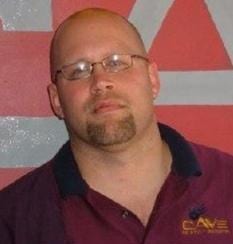An anti-gay letter to the editor published in the Red Deer Advocate in 2002 is “coarse, crude and insensitive” but still a legitimate expression of opinion, Alberta’s highest court has ruled, dismissing an appeal to call the letter hate speech.
In 2002, former pastor Stephen Boissoin, who now works in sales, wrote a letter titled “Homosexual Agenda Wicked,” which accused “homosexual educators” of brainwashing children. In the letter, Boissoin claimed that “homosexual rights activists and those that defend them are just as immoral as paedophiles, drug dealers and pimps that plague our communities.”
University of Calgary professor Darren Lund subsequently filed a complaint with the Alberta Human Rights and Citizenship Commission, which ruled in his favour in 2007. The commission ordered Boissoin to refrain from publishing similar remarks about homosexuals, apologize to Lund and pay him $5,000 in damages.
Boissoin appealed this decision to Alberta’s Court of Queen’s Bench, which overturned the commission’s ruling in 2009. In his decision Justice Earl Wilson wrote that Boissoin’s views may be “jarring, offensive, bewildering, puerile, nonsensical and insulting” but that the letter isn’t hate speech.
In 2010, Lund appealed this ruling to the Alberta Court of Appeal, which denied Lund’s appeal on Oct 17 and ordered him to pay Boissoin’s attorney fees.
“I still have to talk with my legal team,” Lund says. “It is possible to seek leave to appeal to the Supreme Court, but we would have to [be on] pretty solid legal ground. While I disagree with this ruling, it is what the appeal court ruled and this may be the end of it.”
Boissoin tells Xtra that he hopes the 10-year saga, and the negative attention associated with it, has come to an end.
“I’ve stood up for my opinion, and I know for a fact, regardless of what anyone else says, that I’ve done it with dignity, integrity, and I’ve done it honourably,” he says from his home in Red Deer.
“I never went out of my way to badmouth anyone,” he says. “With me I’ve been threatened to be stabbed with an infected AIDS syringe and beat up more times than I can count. Along the way I have been called every name that you can imagine. I’m not a hater. In fact, if you check the archives of the Calgary Herald you’ll see letters from homosexuals who communicated in the paper that I treated them like family.”
In his decision Alberta Court of Appeal Justice Clifton O’Brien finds that Boissoin’s letter was written to stimulate and add to an ongoing public debate and does not meet the threshold of hate speech.
“A certain amount of public debate concerning such an issue must be permitted, even if some of it is offensive, to make the general public aware that such type of thinking is present in the community and to allow for its rebuttal,” O’Brien rules.
O’Brien agrees with Justice Wilson’s observation that the commission stripped the letter of its context when it failed to consider the affidavit of Joe McLaughlin, who was the managing editor of the Red Deer Advocate. In his affidavit, which is included in O’Brien’s ruling, McLaughlin writes that his publication believes that editorials, commentary and letters written in response to Boissoin’s letter were “more likely than not to promote tolerance of homosexuals rather than discrimination.”
O’Brien emphasizes that the purpose of publication is to further debate an issue of public interest. “Matters of morality, including the perceived morality of certain types of sexual behaviour, are topics for discussion in the public forum,” O’Brien finds.
“Frequently, expression on these topics arises from deep-seated religious conviction, and is not always temperate. It is unfortunate when some choose to express their opinions in a crude and offensive manner, but sincerely held convictions sometimes give rise to extreme polemical speech. Freedom of speech does not just protect polite speech,” O’Brien rules.
Lund believes there is a very clear place where society ought to draw the line between free speech and hate speech and remains adamant that Boissoin’s letter crossed well over that line.
“There’s a justifiable hesitation in limiting anyone’s right to free speech, but I think reasonable limits can be drawn, and this was a case where most people would say, ‘Yeah, that went over the line,’” he says. “I notice that not one mainstream newspaper has republished Boissoin’s letter in 10 years. That tells me that it’s extreme and offensive. It’s still a hot-button political issue in Alberta. There are a large number of people who are openly homophobic. The climate is definitely changing, but this ruling sets the message that this is a fairly comfortable place for hate mongers.”

 Why you can trust Xtra
Why you can trust Xtra


